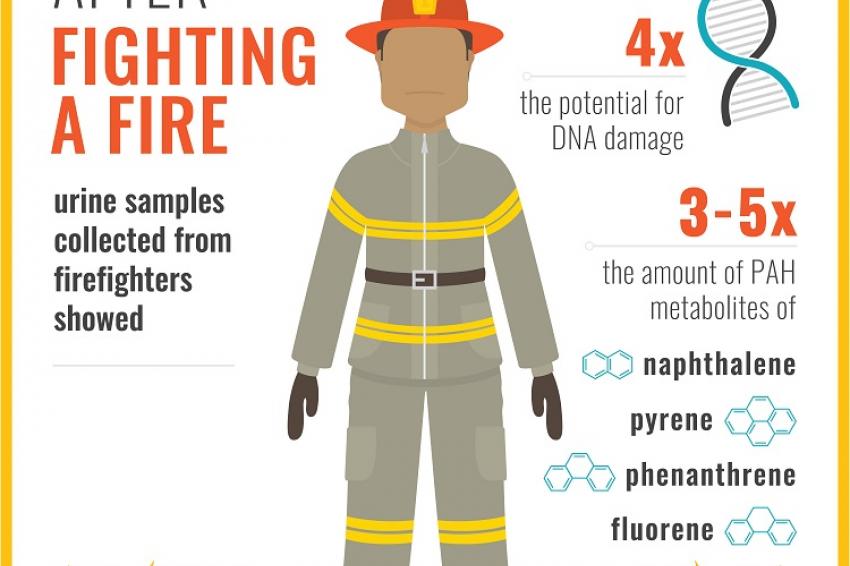Firefighters absorb harmful chemicals through skin, study finds
Firefighters battle not just flames, but exposure to carcinogens as well
Captain David Matschke is well aware of the dangers he faces on the job. A firefighter for 32 years, he is trained to race to the scene of house fires, car crashes and even industrial accidents, breaking through windows and doors to evacuate occupants and routinely putting himself in harm’s way. But beyond fire itself, a study published in the journal Environmental Science & Technology sheds new light on another, more insidious threat that may be putting firefighters’ health at risk: toxic chemicals in smoke.
A team of researchers at the University of Ottawa, working with Health Canada, the University of Toronto and the Institut national de santé publique du Québec, examined chemical exposure experienced by Ottawa Fire Service firefighters during on-shift, emergency fire operations between January 2015 and April 2016.
The team collected urine and skin wipe samples from the firefighters at the start of their shift as well as after a fire to measure whether they were exposed to polycyclic aromatic hydrocarbons (PAHs), which can cause DNA mutations and cancer, and other harmful chemicals often found in smoke.
“Firefighters had from three to more than five times the amount of metabolites, or by-products of PAHs, in their urine after a fire compared to before the fire,” says Jennifer Keir, researcher at the University of Ottawa and senior author of the study. “Mutagenic potency of the urine, which reveals the potential for genetic mutations, also increased on average more than four times after a fire.” Since urine contains waste and toxins filtered by the kidneys from the bloodstream, its mutagenic potency is a good indicator of the presence of noxious components in firefighters’ blood.
For more information:










